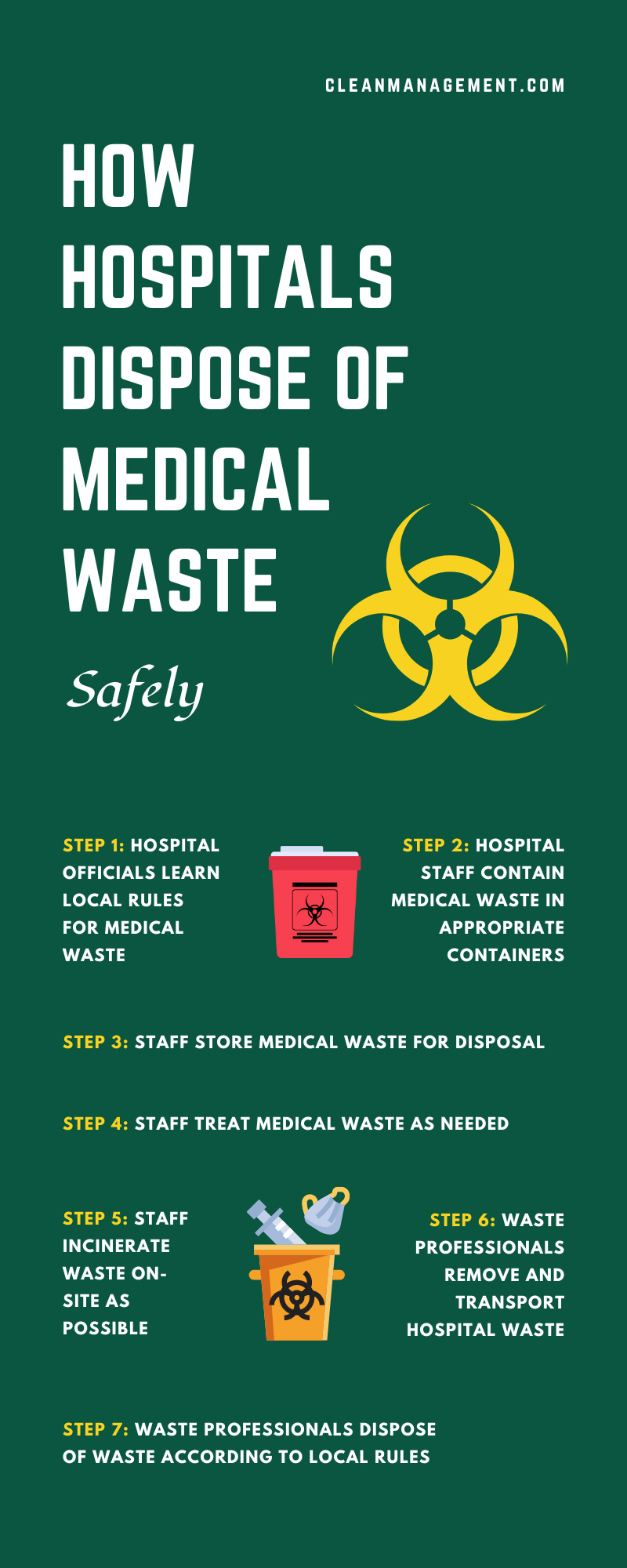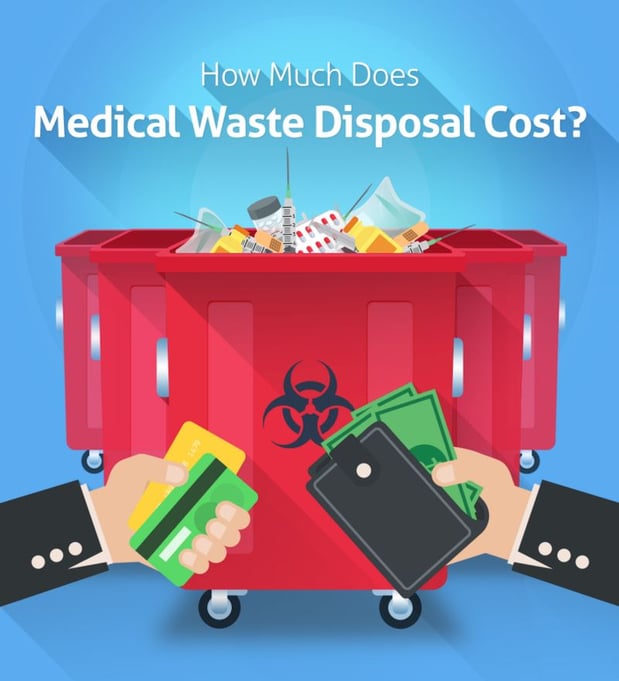Navigating Medical Waste Disposal: Necessary Providers for Healthcare Facilities
In the intricate landscape of medical care operations, the management of clinical waste is a crucial aspect that demands careful attention. Medical care centers, whether tiny centers or big healthcare facilities, are turned over with the responsibility of handling, treating, and disposing of a wide array of medical waste streams. The complexities associated with browsing through the governing needs, ensuring correct waste segregation, and implementing risk-free collection and transportation processes are extremely important. Recognizing the vital services that sustain clinical garbage disposal is not just a matter of compliance but likewise a fundamental part in guarding public health and wellness and ecological health. The complexities of this process are essential for medical care centers, and the expertise provided in this world plays a pivotal role in keeping the integrity of medical care systems.
Regulatory Compliance Assistance
For health care facilities, ensuring governing conformity support is necessary to keep correct handling and disposal of medical waste. By partnering with governing conformity professionals, health care centers can stay current on advancing laws, mitigate dangers associated with incorrect waste disposal, and ultimately add to a safer and much more sustainable environment for all.
Waste Segregation Guidance

Healthcare facilities have to offer clear guidelines and training to personnel on just how to set apart waste efficiently. This consists of dividing general waste from hazardous materials such as sharps, contagious waste, drugs, and chemical waste. Color-coded bins, labels, and signage are typically used to help in waste partition techniques. Regular audits and tracking of waste partition processes are important to determine any concerns and make essential enhancements.
Collection and Transport Solutions

Proper collection and transportation solutions are essential parts of the clinical garbage disposal process in healthcare facilities. These solutions ensure that hazardous materials are managed securely and in compliance with guidelines to secure both the setting and public health and wellness. Health care centers count on specialized waste management firms to provide reliable collection and transportation services customized to their needs.
Medical waste collection includes segregating different kinds of waste at the factor of generation, utilizing color-coded containers or bags to distinguish between basic, hazardous, pharmaceutical, and other waste streams. As soon as accumulated, the waste is moved in committed automobiles furnished to handle dangerous products securely.
Treatment and Disposal Solutions
In the realm of clinical waste disposal for health care centers, after the essential phase of collection and transport solutions, the click here now emphasis shifts in the direction of implementing effective therapy and disposal remedies. Treatment services often include processes such as autoclaving, which utilizes steam under pressure to decontaminate the waste. This approach is generally utilized for infectious waste that must be provided non-hazardous before disposal. An additional widespread treatment method is incineration, where waste is subjected to heats in regulated settings to minimize its quantity and eliminate pathogens.
Disposal services encompass the final action in the clinical waste monitoring procedure. Reusing and source healing are additionally getting grip as sustainable disposal choices for particular types of clinical waste products.
Effective treatment and disposal options are vital in guaranteeing conformity with guidelines and securing public health and the atmosphere. Medical care centers have to meticulously examine and pick appropriate methods that align with their waste management goals and sustainability initiatives.
Staff Training and Education

To successfully take care of clinical garbage disposal in healthcare centers, comprehensive team training and education play an essential role in guaranteeing adherence to you could look here regulative requirements and maintaining a safe setting. Appropriate training gears up staff with the expertise and skills needed to take care of various kinds of medical waste, segregate them appropriately, and package them firmly for disposal. By educating staff members on the dangers related to improper handling of clinical waste, facilities can lower the chance of mishaps, contamination, and regulatory offenses.

Verdict
Finally, medical care facilities depend on essential medical waste disposal services to make sure regulative conformity, correct waste partition, safe collection and transport, reliable treatment and disposal, in addition to team training and education. These solutions play a critical role in keeping the health and safety and security of both health care workers and the basic public, highlighting the relevance of appropriate administration of medical waste in health care setups.
For health care facilities, making sure regulative conformity assistance is necessary to keep correct handling and disposal of medical waste. Waste segregation includes categorizing various kinds of medical waste to ensure proper handling, treatment, and disposal. This consists of separating general waste from unsafe materials such as sharps, contagious waste, drugs, and chemical waste.Clinical waste collection visit their website entails segregating various kinds of waste at the factor of generation, utilizing color-coded bags or bins to identify in between basic, dangerous, pharmaceutical, and other waste streams.In the world of clinical waste disposal for medical care centers, after the crucial stage of collection and transport solutions, the focus shifts in the direction of applying reliable therapy and disposal remedies.